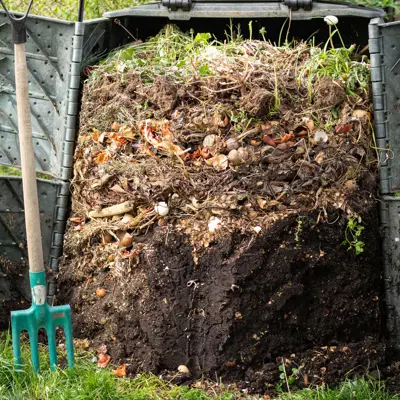The process of materials breaking down in your composter is called decomposition. Think of a composter as a living organism, so it requires food, water and air to work. Maintaining the proper balance between food, water and air is important. It will help break down the materials in the composter faster.
- Have a 50/50 ratio between ‘wet’ and ‘dry’ materials. Wet materials are items like fruit and vegetable scraps. Dry materials are items like leaves and twigs.
- Make sure the materials in your composter are moist, like a wrung-out sponge.
- Give the materials in the composter a stir every other month in the spring and summer. The stirring will add oxygen which is necessary for the decomposition process.



